Prophetic Leadership Toward a More Just World
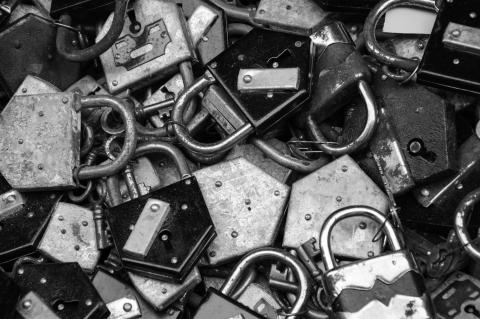
Faith communities across the country are drawing from deep wells of legacy to organize and advocate for a more just world. People of faith are returning to their spiritual roots for guidance on how to engage the world’s struggles for justice in ways that honor our faith. To equip faith communities to boldly do the work of justice in their own areas, Sojourners offers the Faith in Action series. Learn more about how to put your faith into action here.

I had a dream last night that I was reunited with estranged family. Watching them live their lives and being separated from them became unbearable. I sat in my family member’s living room weeping, saying: “I can’t do this anymore.” My not-so-little-anymore niece took me by the hand, in my dream. She walked me to a corner in her room where she laid a prayer cloth on the ground, knelt on her knees facing east, and asked me to offer prayers of forgiveness with her. It stunned me. I woke up.
Forgiveness.

The assumed exceptionalism and excessive triumphalism of the American church conflicts with the biblical call for humility as evidenced by lament. The practice of lament in the Bible confronts our American Christian assumptions. Biblical lament calls for honesty and truth-telling about the broken state of society and the individual. As such, the excessive triumphalism of American society has nearly quashed a necessary countercultural practice.

The core of the contemplative path is not just an individualistic process; it is about being a deeper part of the communal human family through the action of how we live out a just and radical spiritual truth, as Christianity was founded in the radical and revolutionary path of Jesus. The root of the Jesus story, of "becoming" his calling and path, is inherently about the integration of contemplation, action, and healing.

Focus on healing in movement spaces is often reserved for times of crisis — or is reduced to individual consumerist self-care like a glass of wine and a pedicure. In our leadership development, community cultivation, and organizing models, focusing on resilient, integrated, whole selves is considered extra — a fun and indulgent add-on to the “real work of organizing.”

Resistance is holy work. It is an act of healing. But many clergy and faith leaders (myself included) are either traumatized themselves or so justice-fatigued that it becomes too difficult to sustain resistance.

Repairing isn’t as easy as it sounds. It’s rarely as straightforward as we hope for. And sometimes it’s downright costly, or worse, impossible. If the church wants to be a part of repairing entire communities, we need to be willing to do at least three things: Gather the experts, put in the time, and give and live sacrificially.
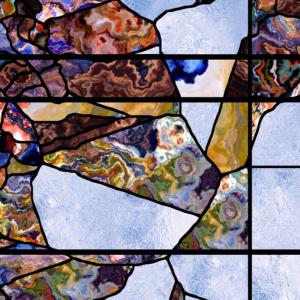
In an age when both explicit and implicit biases are becoming legitimate justifications to curse the image of God, it is time for the church in the U.S. to face itself. It is time to repair the broken fabric of our nation. It is time to interrogate the stories we tell our selves about ourselves by immersing ourselves in the stories of the other.

I have been writing, speaking, and teaching about the manifestations and impact of white privilege since I finished my doctoral work on the subject in 2004, and one of the more difficult subjects to address with white audiences is the question of reparations. While white people tend to frame the subject as a discussion about how much money is going to be taken away from them, there is another way to think about it. Getting white people to give up wealth is a bit of a non-starter, no matter how persuasive the argument might be for its justification.
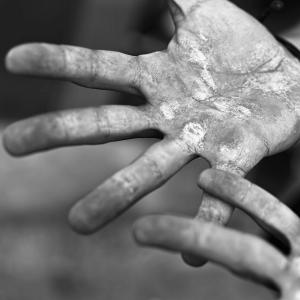
The people writing, preaching, and claiming to know how to interpret "the" truth were almost entirely cisgender heterosexual white men in positions of authority in religious communities.

Restoration and reconciliation with God is the ultimate goal. It is the incarnate Jesus who provides the way back for humanity to be restored and reconciled to God. This is the essence of the Christian faith.

Someone lied. It’s more acceptable to say, “You’ve been bumped because the flight is overbooked,” than to say, “You’ve been bumped because we want your seat to fly our staff. That lie led to violence. Violence led to trauma for passengers, for millions of viewers, and for United, which sustained a $1.4 billion dive in stock value by Tuesday morning and now seems rested at a $255 million loss.

I first heard about the incident on the United Airlines Flight 3411 from my friend on social media, who was sitting directly behind Dr. David Dao and captured video footage of the encounter as the authorities asked him to get off the plane. Dr. Dao explained that he could not and would not because he had duties as a physician early the next morning and had been traveling for 24 hours. Video footage showing him being forcibly removed from the plane went viral and people are rightly discussing how he was treated and what United Airlines should do in response.
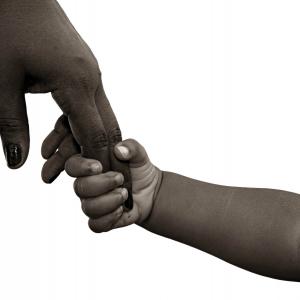
It was this fundamental story of black faith that I wanted to sow deep within my son. I realized that if I was to prevent the denigrating pieces of white inhumanity from being “implanted deep within [him],” then he had to know the story of faith that has helped black people “in the teeth of the most terrifying odds, achieve an unassailable and monumental dignity.”

Here’s how: We have been living according to different stories of America’s past. As a result, we interpret the present differently. In turn, we dream a different future.

My primary medium is portrait photography, and during my sessions I draw people out by asking questions about their very literal story. What is delightful for you in this season? What is hard? What I’ve found happen in these conversations is that decades of untended pain or suppressed pleasures begin to break forth, find air, and heal as needed or grow.

Here is the power of story: to make people pay attention and be fully present. The only irony is they are fully present in a story that is not their own. We weep for a Dumbledore who never lived, thrill at a first kiss that wasn't ours, and experience the terror of being chased by a psychotic killer while safely resting a theater seat.
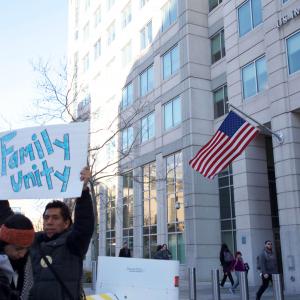
An immigration judge once told me the story about an Albanian family: On their way to their final asylum hearing, they were broadsided by a drunk driver and ended up in the hospital. Because they missed their court date, they automatically received a deportation order. “Almost 10 years and almost a million dollars to remove the order,” said the judge. “It’s like pulling a wisdom tooth continuously for years."
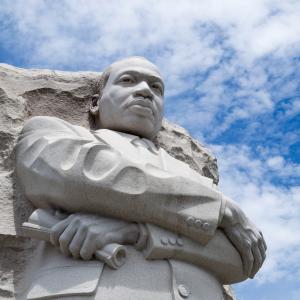
On the Friday morning before Martin Luther King Day this year I met nine twentysomething Sojourners interns at the Martin Luther King Jr. Memorial on the National Mall. We collected into a circle, and I told them: “This is sacred ground.” I explained that we would enter the grounds in silence. I instructed the mostly white group to spend 15 minutes examining the memorial — observe — see what they see. Then we would come back together and share what we saw.
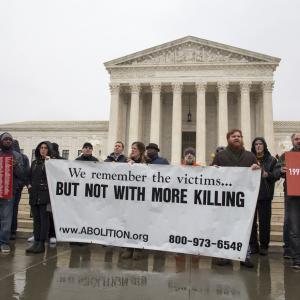
We resisted — and we still face the possibility of jail time, fines, and community service. Here are a few of the lessons I’ve learned planning events like this one over the years. I hope you can use them as you continue to resist unjust policies.
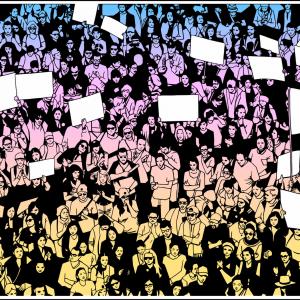
In the wake of executive orders from the Trump administration targeting Muslims, leaders of faith and moral courage gathered to cultivate resistance. In this moment, resistance means providing sanctuary for undocumented citizens, rejecting policies that restrict human flourishing, and calling one another to moral citizenship in the face of immoral and unjust policies. Moral citizens, according to ISAIAH executive director Doran Schrantz, fight “for the moral and political truth that the promise of our democracy is imperiled unless all are human, all are citizens, all are free.”
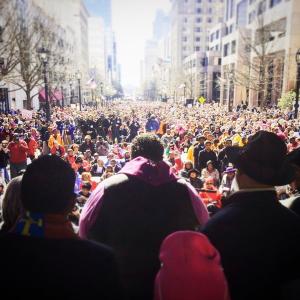
On Feb. 11, more than 80,000 people gathered in Raleigh, N.C., for the largest Moral Monday march yet — challenging Trumpism in Washington, D.C., and legislative overreach in our state. More important than the numbers, though, are people’s convictions: Principle, not party, is the reason why we march. We march because our deepest religious traditions have trained our bodies to stand up in the face of injustice.

As a pastor in a historically black church, Quinn Chapel A.M.E. Church in Jefferson City, and the Executive Director of Missouri Faith Voices, a PICO federation, I say this attempt to silence and disenfranchise voters is contrary to the gospel of Jesus Christ. When I interpret Matthew 25, it is not merely about providing food, clothes, and hospitality — it is about transforming systems that have caused people to be left out.

So when I returned for my sophomore year, armed with a year of conscious change and — even more important to my 18-year-old mind, a car — it was a no-brainer that in my first opportunity to vote, I would volunteer to drive people to the polls. Assigned to a poor public housing development, I ferried seniors back and forth to their polling places, amazed at the quiet dignity and determination they displayed in pressing their way to the polls. Not too proud to ask for help, they had sought rides to the polls through various community organizations who had said, “If you want to vote, we’ll get you there.”

We must remove the veil that separates the least of these and count it not robbery to give them their legal, spiritual, and constitutional right to move beyond acts of mercy, but to build power for social change. As we begin to build prudent bridges, we break the sacred-secular divide and crippling covenants the silence us. We must renounce the manifesto placed upon our communities, schools, neighborhoods that allows the rich to reap where they have not sown. We must embrace our right to vote not only as a civil right, but a Godly right. We can no longer impose predatory measures upon ourselves; we have to remove the cloak of suppression.

One critical lesson from the environmental justice movement is this: Racial inequity and economic disparities are intertwined fault lines running in different directions, crisscrossing the everyday lives of people of color. History shows by what means the two interact and the consequences. These crisscrossing forces downgrade the quality of life and narrow opportunities for health, housing, and financial stability. Meanwhile whole communities suffer. Remember Flint, Mich. Consider the Sioux Nation’s historic push against the Dakota Access Pipeline.

When we center healing, we remember that our struggles for social justice are not just about opposing things we do not like, but building the world we would actually like to live in. So many people do not join the hard work of organizing because they see only what they might lose and not what they would gain in world without oppression. That’s why the process is as important as our goal of social justice. Instead of waiting for the infinitely deferred “revolution,” we can start living the revolution now so people can have a taste of what a better world can be.

Outside of his role in our family, my grandfather played three roles in life that were dear to him: die-hard Mets fan, deacon in his church, never-miss-an-election voter. He was so unbelievably clear in his intention about voting, and perfectly committed to voting. He made that connection between faith and action.
And in his way, he lived out something I think about all the time: how to make our presence in the world powerful enough to change it.

Four weeks ago many of us celebrated the news that the Department of Justice plans to end its use of for-profit prisons. But we then had to wrestle with the fact that this means nothing for migrant detention, which is the largest supplier of prison contracts for GEO and CCA — the top two corporations behind for-profit detention of immigrants of all ages: from babies to the elderly.

Our nation and the post-colonial world is facing a critical moment. We must face the diagnosis rising from the colonized. We must accept the reality that we are ill. We have been living according to false narratives and led by spiritual lies. And those lies have shaped and ordered life among us since our founding days.
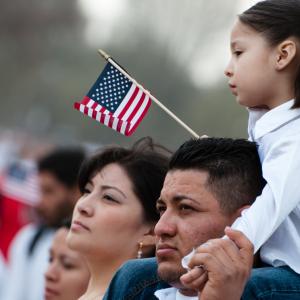
Seven years ago, on a cold day in December 2009, I entered Elizabeth Detention Center in Elizabeth, N.J. — a minimum-security prison on a pilgrimage organized by the Interfaith Center of New York and Human Rights First. This one-day journey ushered me into the story of immigrants in the New York and New Jersey area, and changed my life.
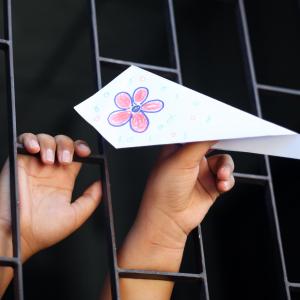
The real power of these assessments is that they become safe spaces for people to tell their own story and in their own terms. Change lies in our collective capacity to open more avenues for first person accounts — and, more importantly, to translate these accounts into first person movements.

El Camino del Inmigrante (the way of the immigrant) is the name of an upcoming 150-mile walk from the California-Mexico border to Los Angeles, arriving in time for the annual Christian Community Development Association conference. Participants in the conference and Southern California residents — immigrants and citizens — will walk together for ten days to remember and to lift up the suffering of migrants as well as their contributions to our country.

Importantly, in the Old Testament, Israel was told to rehearse its story of redemption in its feasts. That story was to spur them on to faithfulness, but also to motivate them to be open to outsiders. They were not to repeat the actions of their oppressors in their engagement with outsiders, but be accepting and helping (e.g., Exodus 22:21; Deuteronomy 5:12-15; 24:17-22).

What if these were not our foundations? What if these foundations did not lay the groundwork for philosophical and legal frameworks that created separate and unequal schooling for the next 150 years? What if they did not lay the foundations for racialized de-facto exclusions from the Homestead Act and the G.I. Bill. And what if they did not lay the foundations for environmental and climate injustice that causes heightened hardship in communities with less healthcare and fewer resources. And what if they did not lay the foundations for 1.5 million black men to go missing from black communities, families, churches, and civic structures — prized booty of America’s racialized Drug War and a new source of near free labor for American corporations within state and federal prisons.

The most important political fact in America is that, in just a few decades, we will no longer be a white majority nation but a majority of minorities. The milestone historical realities of that fundamental demographic shift are underneath everything else in American politics. Race is an intersectional issue in our political discourse today.
As Christians, our response to the changing demographics of America should be two-fold: a renewal of our baptism and a renewal of democracy.
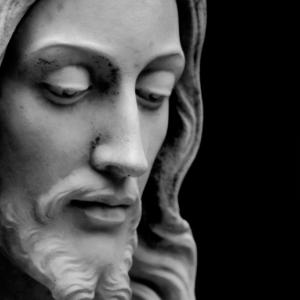
Christian communities get romanticized as places populated with ideal human beings who reflect a pursuit of individual morality in a community of righteous individuals. Yet, in a society organized by race, ideal humanity is always white. Race has calibrated dominant streams of Christianity according to the goals of white supremacy rather than allowing the gospel to calibrate human social interaction toward justice. Christianity scrubbed of justice turned Jesus into a white man, and the gospel into a message of individual morality, calibrated to the language of virtue derived from Jesus as a fetish of idealized white masculinity.

The idea that you're "the other" means that you often are treated differently, often treated as less deserving, or less worthy of respect and protection — both from your surrounding community and often from the law. I've seen the "othering" of not only Asian Americans but also of Latinos, African Americans, Native Americans, Muslims, and countless others. The political construct of race, and — in an international context “othering” — serves and protects those attributed in-group status. It allows the in-group to keep those deemed “outsiders” at a safe distance to lessen the threat presented by their presence — threat to internal value, threat to safety, and threat to resource access.
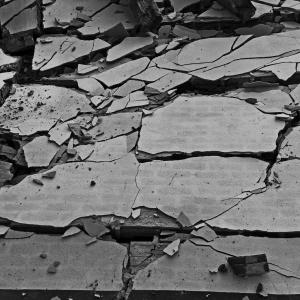
Lisa’s work provides a thorough biblical analysis, from Genesis to Revelation. It takes all 66 books of both testaments to fully grasp the texture and depth of the biblical theme of shalom, this pervasive idea so vast in its meaning which defies simplistic theological definition. Shalom requires, indeed demands, this kind of careful reading in order to grasp what Walter Brueggemann calls an emphasis on a “’thick’ reading of the gospel,” in contrast to the “’thin’ theology” so often put forward by both “convenient fundamentalism” as well as the “progressive church.”

As a black man, I combat conflicts about my identity as I live in this “Christian nation” daily, and sometimes moment by moment. Growing up, I heard from evangelicals that God doesn’t see color. God is not interested in our physical bodies — God redeems the soul. As I matured in my faith, I never doubted that God loved me, but I did begin to question how books, sermons, and conferences were interpreting the significance of Jesus’ death on the cross. Hours after I would leave church or a conference, I did not feel empowered to engage the world as a person created in God’s image. Rather, I felt like Ralph Ellison’s Invisible Man.
'The Very Good Gospel' celebrates a web of creation where the flourishing of one is the flourishing of all.

Tracing God’s indomitable shalom throughout Scripture, The Very Good Gospel celebrates the blessed web of creation where the flourishing of one is the flourishing of all. Devoting nearly 20 pages to shalom between the genders, Lisa Sharon Harper considers her own experiences in Christian ministry where too often God’s gifts to women are shamed and marginalized. Harper challenges the theological distortions that rob men and women of that blessed partnership beaming throughout the pages of Scripture.
My Search for a 'Very Good Gospel'

If I were to share my understanding of the gospel to my ancestors who walked the Cherokee Trail of Tears (according to family oral tradition) and slaved in South Carolina and Virginia (according to Census Slave Schedules), would they receive my simple understanding of Jesus’ “good news” as good news? Would they jump for joy to find out “God has a wonderful plan for their lives, but they are sinful and therefore separated from God, but Jesus died for their sin, so if they pray a simple prayer they get to go to heaven?”
If this news would not lead my oppressed ancestors to shout with joy, then maybe it’s not good news at all — or at least it’s not good enough.

While Michigan Gov. Rick Snyder has admitted that mistakes have been made and takes full responsibility, the residents of Flint to this day have not found remedy. His initial action was to have city fire stations serve as bottled water and water filter distribution points. Michigan National Guard personnel provided water to residents there.
And the nation knows the crisis — high lead levels in children’s blood tests and a spike in Legionnaires disease.

The failure to provide clean water to Flint, Mich., residents has sacrificed their safety and hindered their access to one of the most basic human needs — water. It also drastically diminished the capacity of citizens to exercise leadership and stewardship because lead poisoning stunts victims’ brain development. Plus, the town of Flint, itself, is the “least of these” in the state of Michigan. It is the state’s poorest city.

Seekers are open, curious, earnest explorers. They are on the hunt for truth, meaning, and purpose. They are in touch with the questions of their lives. They are in touch with their need. There is a profound humility in the seeking process. To be a seeker, one must admit she is not God. He must acknowledge that there is something to understand and experience beyond his current reality. In The Story of God, we become seekers on Freeman’s journey. Our eyes are opened to our own questions about God, death, life, love, and purpose.
It occurred to me: South Africa is no longer under legal apartheid, but apartheid still thrives here — through de facto economic segregation. There are no signs that say “whites only” as they did under apartheid, but there has also been no move by the black government to restore the people to the land that was taken from them.
One question haunted me: How does a white Christian South African live in this apartheid from day to day? 1) One must actively fight injustice, or 2) she must embrace a theology that has nothing to do with it.
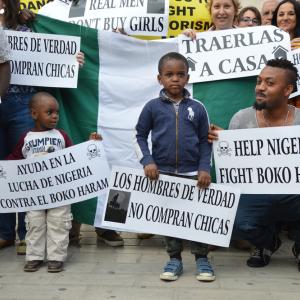
I don’t know who posted it. But on Feb. 2, as I customarily do, I checked into Facebook to see what my friends were talking about. A post popped up about 86 children slaughtered in Dalori, Nigeria, by Boko Haram, the terrorist group that kidnapped upwards of 300 girls on April 14, 2014. The children, the post dated Jan. 31 noted, were burned alive.
I reflexively shuttered. How was is possible that is was Feb. 2 and I had heard NOTHING of children burned alive, not on any news network?
If we walk through Latin America and Caribe, and of course Africa and Europe, wherever black people are present, we see how much they are below the possibilities of ascension, trapped in the lowest classes of social scale. Some nations where there are black people in the population, even if in incipient number in some of them, are Peru, Ecuador, Venezuela, Colombia, Mexico, Haiti, Dominican Republic, Cuba, and Brazil. In all the nations cited, blacks are inserted in the lowest social strata. Therefore, we must ask an important question: Why in Latin America and Caribe black people are always in disadvantage?

“There is nowhere a human being should be allowed to enslave others.”
This is a statement made by Burundian Catholic Archbishop Simon Ntamwana, referring to the Burundian president who was seeking an extra term in power. The archbishop was implicitly calling the president's actions unjust and unacceptable.
Indeed, the term limit crisis in Africa needs to be considered in the same light as the liberation, decolonization, and democratization movements against slavery and apartheid. Similarly to those struggles in history, today's term limit crisis in Africa is characterized by people struggling against oppression and political injustice.
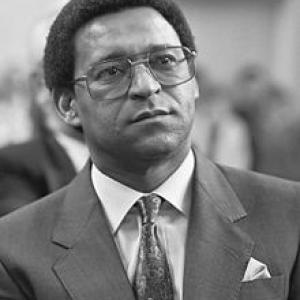
Allan Boesak is not only a South African theologian; he is a true son of the African soil and a world renown ecumenical and public figure. Since his return from abroad after obtaining his doctorate in theology at Kampen, Holland, in 1976 he has had a tremendous influence on theological and socio-political discourse globally.
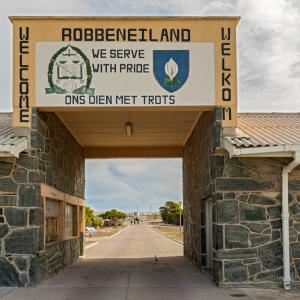
I recently spent a week on Robben Island, the prison where Nelson Mandela spent the first 18 of his 27 years imprisonment. The Warehouse gathered together about 80 peace activists from around the world and South Africa to discuss, reflect, and meditate about the struggle against the apartheid system. Robben Island is now a World Heritage protected museum visited by thousands of tourists every year. It is used to teach current and future generations about lessons from this painful episode of South African history. Standing in those tiny prison cells, I travelled back in time and imagined life under apartheid: the mere injustice of the system, the dehumanizing treatment, the humiliation.